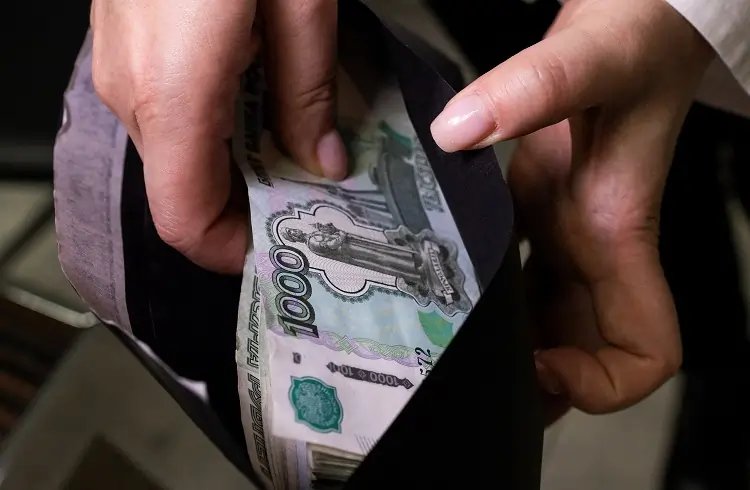Russian rouble down by one quarter since early August


By Gleb Bryanski
MOSCOW (Reuters) – The Russian rouble weakened further against the U.S. dollar and China’s yuan on Wednesday and is down by over 24% since early August, when it started the current slide.
The rouble’s fall caught off guard economists who expected the Russian currency to hit the 100 mark against the dollar in one year, according to the Reuters poll in early November. It hit a 32-month low last week.
By 0800 GMT the rouble was down 0.86% at 106.40 against the dollar, according to LSEG data. It was down by 0.51% at 14.74 against the yuan, also the lowest level since March 2022, the first month of Russia’s invasion of Ukraine.
The rouble’s fall is compounded by an over 20% fall in the stock market so far this year as investors shift their savings from stocks to deposits, which offer interest above the central bank’s benchmark rate of 21%.
“The market is awaiting the financial authorities’ reaction for the rouble’s devaluation,” BCS brokerage analysts said, stressing that forex purchases “resembled panic in an environment of uncertainty”.
The rouble’s fall is fuelling inflation, which is set to exceed the central bank’s estimate for this year, working counter to the regulator’s painful monetary tightening with the benchmark interest rate at the highest level since 2003.
The central bank estimates that the rouble’s weakening by 10% adds 0.5 percentage points to inflation, implying that the rouble’s four-month fall could add 1.5 percentage points to the current inflation rate.
“For the central bank, it represents a challenge in combating rising prices,” economist Evgeny Kogan said.
Many analysts predicted the rouble may hit 115-120 before the end of the year with some calling on the government and the central bank to take action such as forcing exporters to sell more forex and reducing the forex purchases by the state.
The rouble’s slide was exacerbated by the new sanctions on Russia’s financial sector, which disrupted foreign trade payments, especially for oil and gas, creating a physical shortage of currency in the Russian market, analysts said.
Most Russian major banks are now under the U.S. sanctions and are therefore unable to carry out bank transactions in dollars and the only remaining option to trade foreign currency for them is to import large quantities of dollar cash.
Many analysts stressed that apart from a new round of tensions with the West over Russia’s military action in Ukraine and new financial sanctions there were no fundamental reasons for the fall, with prices for oil, Russia’s main export, broadly stable.
The weak rouble is beneficial for exporting companies, according to Finance Minister Anton Siluanov, with prices for Russia’s energy exports mostly set in dollars.
It is also helping the Russian government to increase the state budget revenues from energy taxes and export duties.
“The main reason for such a significant weakening is that, in our opinion, this weakening is desirable, said Finam brokerage analyst Nikolai Dudchenko. “Today, the exchange rate is very much conducive to balancing the budget,” he added.
(Reporting by Gleb Bryanski; Editing by Ros Russell)
The Russian rouble is the currency of Russia, abbreviated as RUB. It is used as the primary medium of exchange in the country and is subject to fluctuations based on economic conditions and foreign exchange rates.
Inflation is the rate at which the general level of prices for goods and services rises, eroding purchasing power. It is typically measured by the Consumer Price Index (CPI) or Producer Price Index (PPI).
Currency devaluation is a reduction in the value of a country's currency relative to other currencies. This can make exports cheaper and imports more expensive, impacting trade balances and inflation.
A benchmark interest rate is the minimum interest rate set by a central bank for lending to other banks. It influences the rates banks charge consumers and businesses for loans.
Foreign exchange, or forex, is the global marketplace for trading national currencies against one another. It is the largest financial market in the world, facilitating international trade and investment.
Explore more articles in the Banking category











